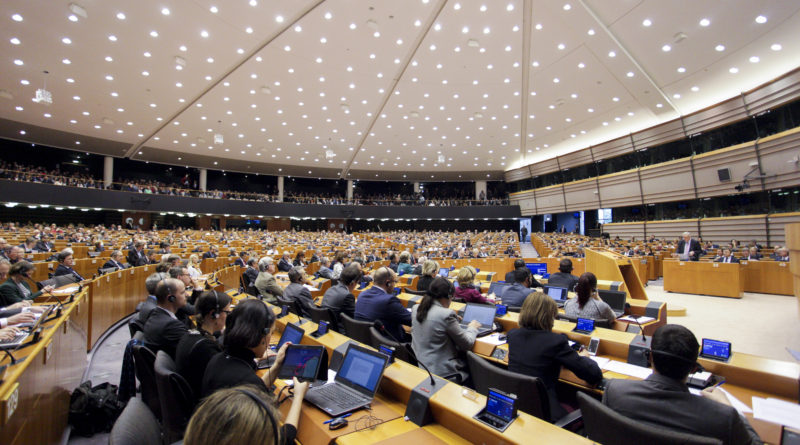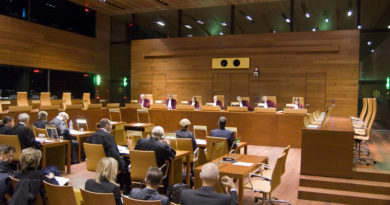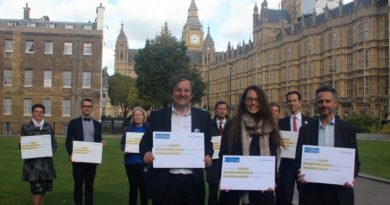EU parliament discusses application of free movement rights in the UK
Reports that the UK Home Office is using requirements to recognise “permanent residence” that limit the rights of EU citizens to reside in Britain were discussed today at the European parliament in Brussels.
The European Commission was invited to respond to an oral question on the infringement procedure started in 2012 against the UK on this matter and on the current situation. After the EU referendum last year, applications for permanent residence (a right acquired after 5 years continuously living in the country, according to EU rules) have surged, as EU nationals try to secure the right to stay before Brexit. In the third quarter of 2016, applications increased by 300% compared to the same period in 2015. A recent report however revealed that 28% were rejected, leaving people in a limbo.
Free movement rights are a core element of EU citizenship and the European Commission has the task to ensure that rules are applied. If countries do not comply, the Commission can start infringement procedures and refer EU members to the European Court of Justice.
In 2012, the Commission issued a reasoned opinion (the second in the three-step EU infringement process) against the UK for not considering the entitlement to the National Health Service (NHS) sufficient to qualify for permanent residence. The Home Office asks in particular that people not economically active take a “comprehensive sickness insurance” not to be a burden on public finances, even if they are entitled to public services because of previous work. Other critical aspects concerned some rights of family members of EU nationals, as well as restrictions imposed on citizens from Romania and Bulgaria.
During the debate in parliament, EU Justice Commissioner Věra Jourova said at present there are infringement procedures on free movement rights against 8 EU countries. The procedure about the UK regards people who are economically not active and UK citizens returning to Britain from another EU country. The Commission is also assessing the compliance of the latest changes to UK permanent residence rules, entered into force on February 1st.
The Commission said there aren’t updated statistics on UK residence applications, rejections and expulsions, as EU countries are not obliged to collect and share such data with the EU. In particular, there is almost no data on UK expulsions and appeals. Work is ongoing to improve statistical information, said the Commissioner, but it is slow due to lack of collaboration from EU members.
No one knows at present which rights EU nationals in the UK and Brits in other EU countries will be able to maintain after Brexit. Several MEPs, such as Catherine Bearder (Liberal Democrats) and Claude Moraes (Labour), mentioned emails received from people in this situation expressing anxiety. They said people should not be treated as “bargaining chips.”
Jean Lambert (Greens) highlighted in particular the problem of carers, who may not qualify for permanent residence in the UK. She called on the government to remove the uncertainty by taking a unilateral step and guarantee EU citizens’ rights. The Commissioner agreed that people need certainty and stability but repeated that before any action the UK has to give effect to its decision to leave the EU, as “there cannot be negotiations without notification.”
Richard Corbett (Labour) added that if the final divorce deal does not respect citizens rights, it should be referred to the EU Court of Justice.
Anthea McIntyre (Conservative) defended the position of the British government and said the debate should focus instead on how to make free movement work better, addressing the challenges across Europe.
Barbara Spinelli (Italian, European United Left) complained that Remainers were too silent on this topic during the referendum campaign and she criticised the UK approach of “wanting only the brightest, the best and the wealthiest.”
Raymond Finch and Janice Atkinson (both elected as UKIP), responded that indeed “British people want to decide who comes to our country and stays there.”
Jeroen Lenaers (Dutch, Christian Democrats) emphasized that the current permanent residence system is far from liberating the UK from the burden of bureaucracy and is “certainly not noble.”
Soraya Post (Swedish, Progressive Alliance of Socialists and Democrats) reminded that 200,000 Roma living in Britain are also in this legal limbo. Finally, Emil Radev (Bulgarian, Christian Democrats) condemned the “untruths” published in some British media on “half of Romania and Bulgaria moving to the UK” and “stealing people’s jobs.”
During the debate, it was repeated that as long as the UK is a EU member, EU rules continue to apply. A working group has been constituted at the European parliament to look into rights of EU nationals in the UK and British citizens in other EU countries during the Brexit process.
Watch the debate (at 5:43:00):
Meanwhile in London the House of Lords approved with 358 votes to 256 an amendment asking the British government to guarantee that EU nationals currently living in Britain will maintain their rights after Brexit.
“It is a relief that for the first time since the referendum, a majority was found in parliament to support the rights of the 3 million EU citizens who came in good faith to live and work in the UK,” commented the3million, a group defending rights of EU nationals in the country. They criticised, however, that the amendment conditions these rights to “lawful residence” as the lack of “comprehensive sickness insurance”, for example, is considered unlawful. “This could be interpreted by the Home Office as permission to leave a large number of EU citizens worse off than they currently are,” they said. “We would have also liked to see a reference on confirming the rights of UK citizens living in other EU countries.”
With this vote the House of Lords amended the bill giving powers to the government to trigger Article 50 of the Treaty and formally notify the EU of the decision to leave. The bill now will return to the House of Commons.
Claudia Delpero © all rights reserved.
Photo: © European Union 2017 – Source : EP/Pablo Garrigos.





